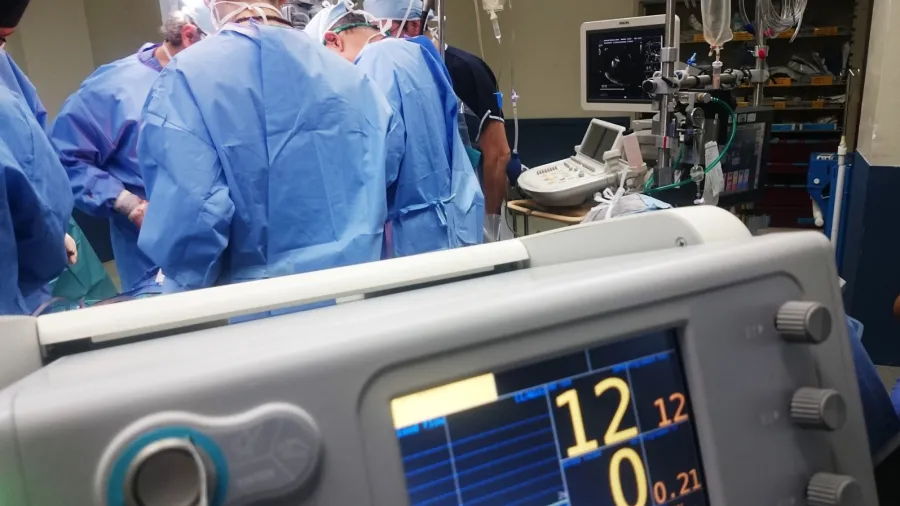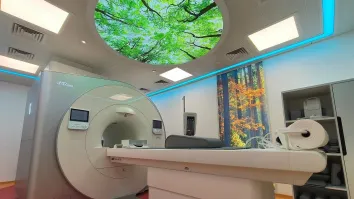
Vietnam hospitals free from tedious procurement bidding
The government imposed a new regulation that will get rid of bidding and give hospitals more flexibility to access products at reasonable prices.
Before, hospitals in Vietnam were bound by government-mandated price limits during their procurement processes, which restricted their ability to negotiate prices for medical equipment and medicines.
Recognising this barrier, the government’s health ministry introduced a regulation, which granted hospitals the freedom to negotiate supply prices instead of being confined to preset price caps.
As such, hospitals are now in a position to access the right medicines and equipment at reasonable prices, said Sakshi Sikka, associate director of pharmaceuticals and healthcare at Fitch Solution Group’s BMI Research.
Luke Treloar, partner and head of strategy for the National Head of Healthcare and Life Sciences in KPMG Vietnam, said the new regulations quicken bidding time after moving past the three quotations needed to purchase a medical device.
Prior to this, hospitals had to receive three quotations before accepting donations from some of the US’ major medical device manufacturers.
“Now, hospitals are permitted to purchase something that isn’t necessarily the absolute cheapest price, which is great news for the global suppliers that are providing high quality and innovative products that aren’t necessarily the cheapest possible solution,” Treloar told Healthcare Asia.
Sikkah said the regulation will also eliminate bidding and set prices based on the government’s price caps within the previous 12 months where new prices could not be higher than old prices.
“With this new regulation in place, hospitals will now have more flexibility while still being able to access quality products at reasonable prices,” Sikkah said in her report.
She said it will also make it easier for hospitals to access medicines and equipment at affordable costs but will also help them reduce costs while buying essential goods in bulk.
“Furthermore, with more competitive pricing available in the market, patients can also expect lower costs for treatments,” Sikkah said.
According to the International Trade Administration, most of the existing medical equipment in Vietnam’s public hospitals is obsolete and needs replacement. They lack equipment for surgery and intensive care units, it added.
More than 90% of medical equipment in Vietnam is imported, and in 2019, the medical device market amounted to US$1.4b.
Boost diagnosis and treatment
If more equipment is available, hospitals will procure better equipment to treat and diagnose patients. These include high-tech imaging and other diagnostic medical tools, said Treloar.
Yoshihiro Suwa, partner and head of life sciences for Southeast Asia at Roland Berger, Suwa said the new measures will allow hospitals to accept donations and look at the specification of devices flexibly. Some of the most expensive equipment are robotics, imaging devices, and ultrasound.
“If you have better radiation therapy, it will improve some of the efficacy and safety of the treatment which should benefit patients,” Suwa told Healthcare Asia.
Magnetic resonance imaging (MRI) machines can help diagnose conditions such as cancer or other illnesses of the heart, which are some of the common contributors to early deaths in Vietnam.
Impermanence and ambiguity
Meanwhile, altering the guidelines for procurement may also pose some risks for hospitals, which are “largely paper-based,” Treloar warned.
“If they change to accommodate these evolving regulations, and if these regulations are impermanent in nature, they could end up wasting a massive amount of energy, and it’s difficult to change it back,” he told Healthcare Asia.
Currently, Vietnam’s digital health infrastructure is still in its early stages, according to a KPMG study. The government set a target that by 2025, 95% of its population will have electronic medical records.
However, the country’s telemedicine solutions are still under a pilot phase while AI and big data in its healthcare industry remain limited.
Another challenge would be that hospitals may find the new regulations ambiguous. Treloar described it as a “realistic concern” for hospital auditing of procured or donated expensive medical equipment, especially in recent headlines showing Vietnam’s high-profile health officers getting arrested due to alleged corruption.
“There’s probably a high level of nervousness from the procurement side of the hospitals. Can these regulations be tested in an audit? If there’s any deviation, are they going to get in trouble?” explained Treloar.
A 2022 news report indicated that about 12 health officials were arrested after being accused of wrongdoings in procuring medical equipment, including test kits.
Bigger hospitals
With seamless procurement, Suwa said manufacturers may prioritize bigger hospitals because they would prefer selling bigger process sizes.
“This means maybe suppliers want to prioritize bigger hospitals rather than smaller hospitals with conventional equipment,” said Suwa.
This may not be felt yet but this will affect smaller hospitals located in rural areas because it may take longer to procure a device.
To address this, Suwa suggested tapping group purchasing organizations for public hospitals that may help streamline the negotiation of equipment and medications, especially for smaller hospitals.
Vietnam has about 1,094 public hospitals, which outnumbers its 193 private hospitals, according to KPMG’s latest study.
Bad news for pharmaceutical sales
Although the new legislative adjustments bid good news for hospitals, they may have downside risks to innovative drugmakers because of a threat to profit margins, BMI’s Sikka warned.
“However, the drug price negotiation will limit innovative drugmaker’s profits in the country and high-value innovative medicines will become increasingly susceptible to price erosion, consequently favouring greater use of generic medicines,” said Sikka.
Sikka also said there is a sharp slowdown in the market’s economic growth to 3.3% year-on-year in the first quarter of 2023, which will result in “fiscal consolidation and medicine cost-containment measures.”
For Treloar, the pharmaceutical market will continue to “unlock their addressable market in Vietnam,” offering prices comparable to other market economies globally.
Suwa said competition is likely for pharmaceutical firms when selling generic drugs. However, those who offer innovative medicines can retain prices because some of these innovative drugs have no alternatives in the market.
“Some of the new drugs or new therapies don’t have to reduce the price because there are no 'me-too' drugs. That is where they can profit,” explained Suwa.
Generic drugs will continue to account for the majority of Vietnam’s prescription drug sales with a value of VND86.2t (USD3.7b) in 2022 and a projected value of VND95.7t (USD4.0b) in 2023, based on BMI Research’s study.
This is expected to increase to VND139.5t (USD5.7b) by 2027 and to VND216.9t (USD8.4b) by 2032.



















 Advertise
Advertise







